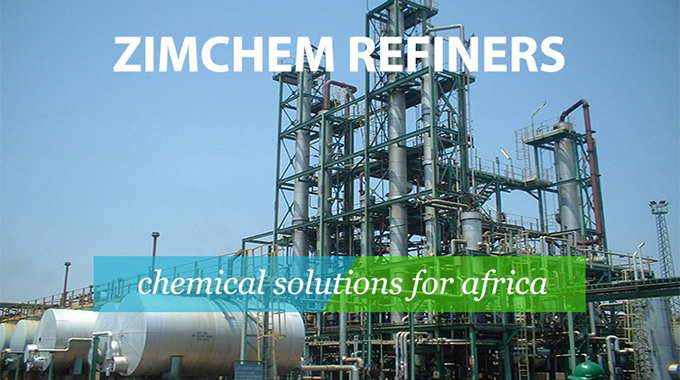ZimChem expresses commitment to aiding Second Republic’s development agenda

Wallace Ruzvidzo Herald Reporter
Redcliff based tar and agricultural products manufacturer Zimbabwe Chemical Refineries (Zimchem) has said it is committed to aiding to the Second Republic’s economic development targets.
ZimChem Refiners Director, Mr Joe Quinn, said most of the operations being undertaken by the company support objectives of the National Development Strategy 1 (NDS1).
The company produces fertiliser, bitumen emulsions, and tar and thus engaged in employment creation.
“Most of those projects support NDS1 thematic objectives. Number one being food security – ammonia fertiliser, number two is infrastructure development – bitumen emulsions, road project and modified tar, and number three being employment creation.
“From those projects listed, at least 500 people will get employment,” he said.
Mr Quinn went on to outline some of the products ZimChem can produce.
“Benzol products we have Benzene, Toluene, Xylene, light solvent Naohtha, Heavy solvent Naphtha, Naphthalene, fronts which is a suitable burner fuel substituting paraffin which is expensive and all these solvents are used for making lacquer thinners, road marking paints, contact glue, engine cleaners. It is from these solvents where research on automobile fuel, petrol, and diesel was produced on a lab scale during research.
“Tar products include Tar prime, Hfo. Lfo, Stone pre- coat, modified Road tar, coal tar pitch, Creosote oil, Coal based medium blasting oil for mining, pitch paint, Tar acids for disinfectant and Toilet dip chemical for public and Blair toilets,” he said.
Mr Quinn said ZimChem also had the capacity to produce fuels such as petrol and diesel.
“We can produce auto fuels and have done so in the past. In fact, we got a gold medal for it many years ago at Bulawayo International Trade Fair,” he said.
Recent statistics show that Zimchem’s capacity rose from about 40 percent to 55 percent and is now producing 30 tonnes of road tar per day against the country’s daily consumption of 10 tonnes.
The company has now set its sights on the export market after increasing its production capacity to 55 percent, thanks to the enabling environment under the Second Republic.








Comments